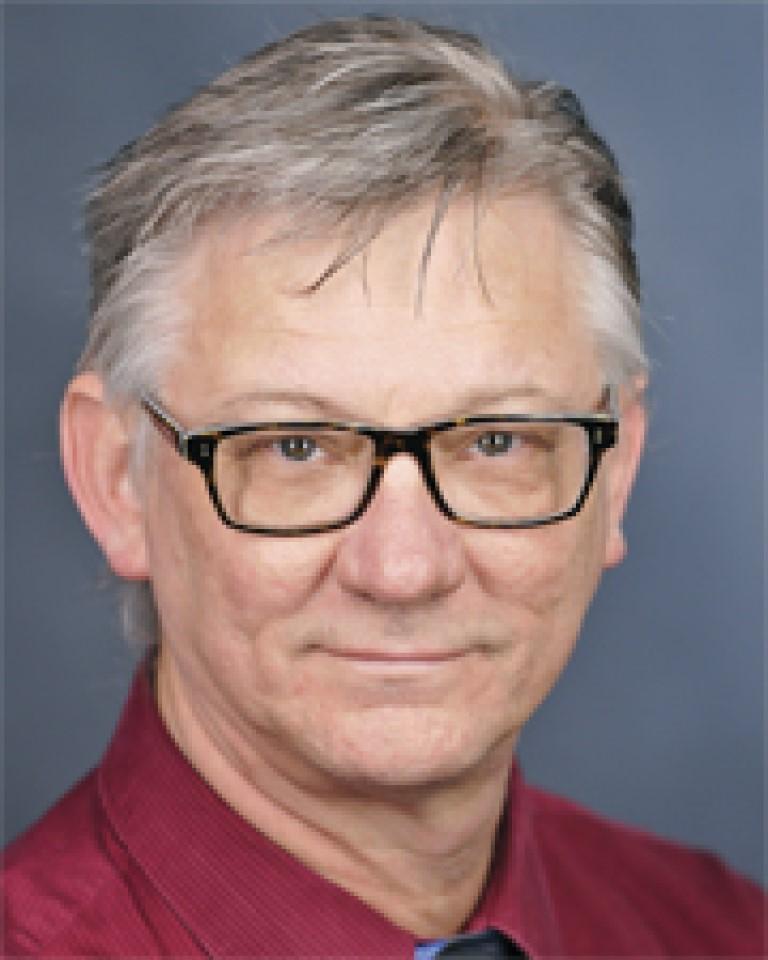Kip Haaheim

MENTOR SPOTLIGHT | OCTOBER 2015
Department: School of Music, Department of Music Theory and Composition
Describe your research/creative work in a few sentences that we can all understand: Most of the time my research/creative scholarship takes the form of composing music and then publishing it in some way. Publishing includes printed musical scores, recordings, performances, on-site installations, films, online publication, etc. Most of my work focuses on or includes the use of computers and other technologies to create and perform music.
Q: How did you first get interested in doing research/creative work?
A: Music has always affected me in a profound way, and I discovered in my high school years that I had a talent for it. I spent many years as a free-lance performer (academia is really my second career), and during that time I was exposed to what sorts of things were going on in University music programs. The intellectual rigor, the community, the high level of excellence, and the open-ended creative possibilities all attracted me to the academy.
Q: What do students in your discipline learn by doing research that they wouldn’t learn by just taking classes?
A: By their nature classes tend to introduce ideas and reveal potentials, but are too shallow to develop a deeper understanding or integration. Doing an ambitious project stretches limitations but also provides motivation to do the (sometimes tedious) work needed to fully integrate ideas and concepts. Also, people seem to learn best by confronting the unknown (or partially unknown) and working things out on their own.
Q: What do you find to be the most exciting part of doing research/creative work? What makes this line of work meaningful and interesting to you?
A: I enjoy the process of learning new things and then creating something that incorporates that learning. I also enjoy puzzles - music composition is often like a very challenging multi-dimensional puzzle. I like to make things that are beautiful and well-crafted. Lastly, I really enjoy working with other smart people that can support me or challenge me or amaze me with their skills. All of which happen in various ways while making music.
Q: What advice do you have for undergraduates interested in doing research in your field?
A: Work hard - but cultivate a relaxed but persistent work ethic that is sustainable for many years. Pay close attention to the fundamentals. Take advantage of every opportunity that comes.
Q: For many students, doing research is the first time they have done work that routinely involves setbacks and the need to troubleshoot problems. Can you tell us about a time that your research didn’t go as expected? Have you developed any tricks or habits that help you to stay resilient in the face of obstacles?
A: I often find myself working "above my head," especially when technology is involved. For example, I've become interested in doing professional creative work that can be experienced on the Web. To accomplish this, I've needed to teach myself three languages: HTML, CSS, and Javascript. At first it was very slow going, but eventually the pieces began to come together in a way that satisfies me. My "trick" is to stick with it - eventually the understanding will come.
Q: How do you spend your time outside of work?
A: I spend time with my family, dabble in cooking, and like to watch animated movies and TV shows. On the physical side I like to hike, do yoga, and shoot arrows at targets with my re-curve bow. I have also been spending time recently taking online math courses - for fun.